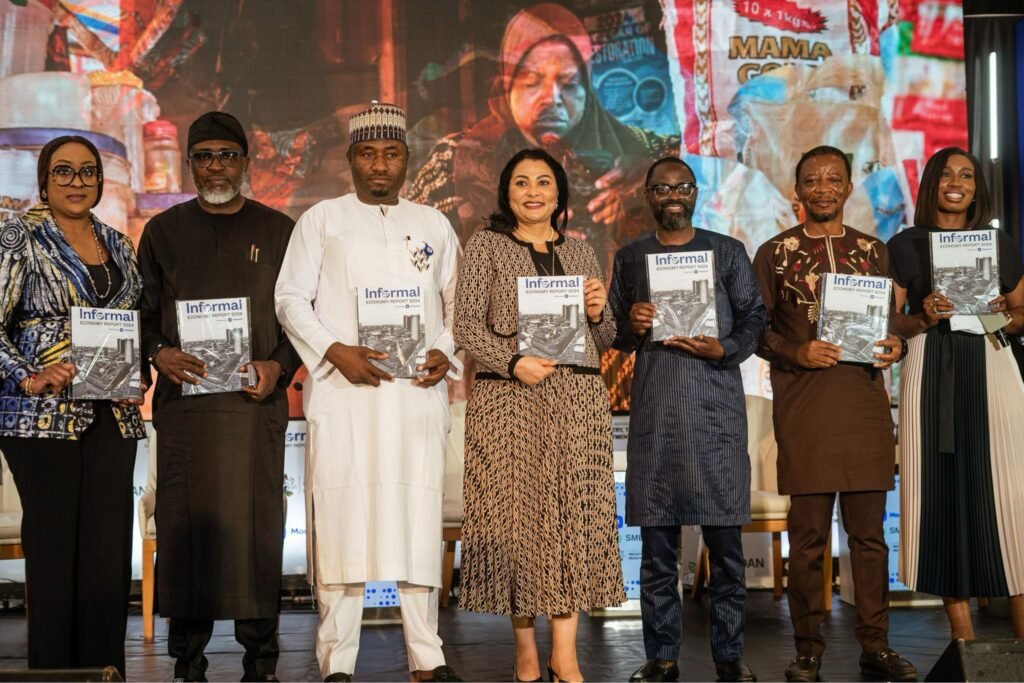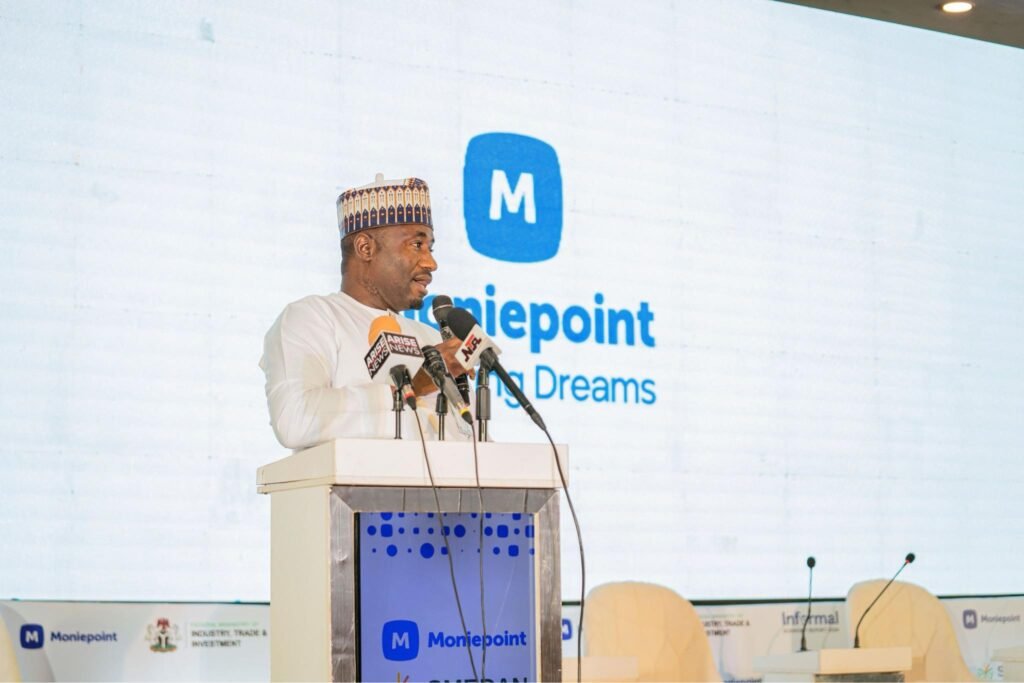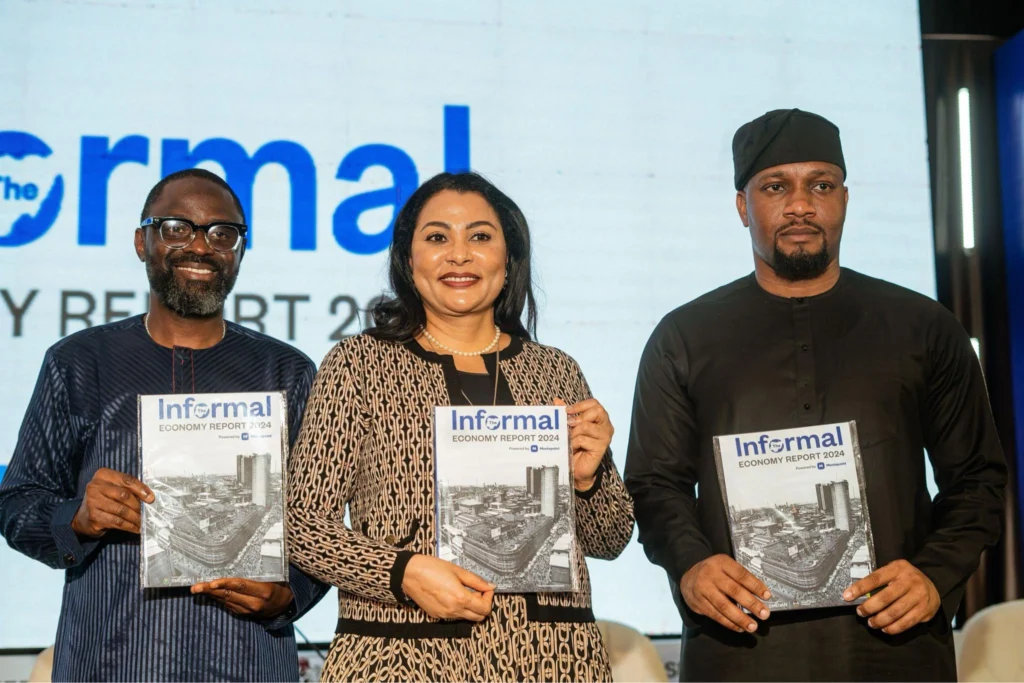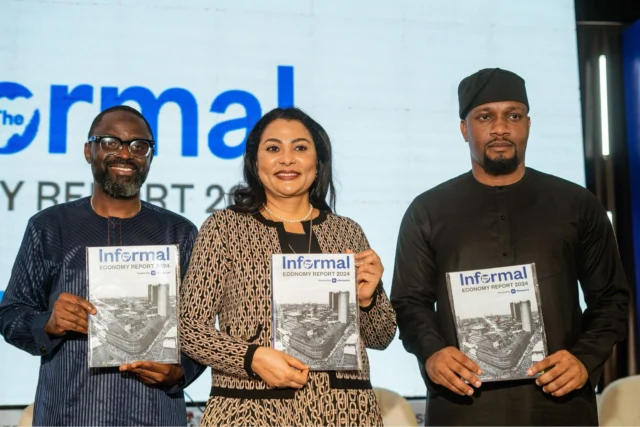Nigeria’s fast-rising fintech leader, Moniepoint Microfinance Bank, is preparing to launch the second edition of its Nigeria Informal Economy Report — a major data-driven study exploring the realities, resilience, and challenges of Nigeria’s informal sector. The report will be officially unveiled on Friday, October 17, 2025, at the Continental Hotel in Abuja, bringing together policymakers, regulators, entrepreneurs, academics, and financial experts from across the country.
The inaugural edition, released last year, sparked widespread interest in shining a light on the vast but often under-researched informal sector that employs over 80 per cent of Nigeria’s workforce. This year’s edition is expected to build on that momentum — revealing deeper insights, updated statistics, and actionable recommendations aimed at fostering inclusion, stability, and sustainable economic growth.
Table of Contents

Unmasking Realities in the Informal Economy
Preliminary findings from the upcoming report reveal a worrying trend: 42 per cent of informal workers in Nigeria have no savings that can sustain them for more than a month without income. This statistic underscores how deeply vulnerable millions of small traders, artisans, transport operators, and market women remain — despite their immense contribution to Nigeria’s economy.
According to Babatunde Olofin, Managing Director of Moniepoint Microfinance Bank, the goal of the report is to provide government and private-sector stakeholders with credible data to design targeted interventions.
“The Informal Economy Report is a robust and important study that examines the informal market more closely and curates fresh insights into its realities,” Olofin said. “We believe its key outputs will serve ecosystem players and government well in policy direction and execution.”
The informal economy forms the backbone of Nigeria’s commerce, estimated to account for over half of the country’s GDP. Yet, most of its participants remain financially excluded, with limited access to credit, digital tools, or social protection systems. Moniepoint’s latest research seeks to address that knowledge gap by documenting lived experiences, regional disparities, and the socioeconomic dynamics driving informal trade across Nigeria’s states.
A High-Profile Event with National Relevance
The Abuja launch is expected to attract senior government officials, regulators, legislators, financial-sector executives, development partners, and civil-society leaders. The event will feature keynote speeches, panel discussions, and a presentation of key findings from the new report.
Moniepoint is positioning this forum not only as a data-sharing event but also as a policy roundtable — where experts can explore solutions that bridge the divide between formal and informal enterprise. Discussions will likely touch on financial inclusion, taxation, regulatory frameworks, small-business financing, and digital transformation.
The first edition of the Informal Economy Report earned commendation from major government agencies — including the Federal Ministry of Industry, Trade and Investment, the Corporate Affairs Commission (CAC), and the Small and Medium Enterprises Development Agency of Nigeria (SMEDAN) — for providing actionable insights that guided sectoral policy reviews.
This second edition, Moniepoint says, will “go beyond diagnosing problems” to outline specific, data-backed recommendations that can empower micro-entrepreneurs and informal operators across Nigeria’s six geopolitical zones.

Why This Report Matters
For a country where the informal sector remains the default employer, Moniepoint’s research represents more than corporate social responsibility — it is an economic necessity. The findings will likely shape how policymakers, lenders, and development institutions design their future programmes.
1. Strengthening policy direction:
The data could help refine Nigeria’s ongoing efforts to formalise informal enterprises — from simplified business registration processes to tax reforms and access to financial safety nets.
2. Empowering financial institutions:
By understanding informal workers’ financial behaviours, banks and fintechs can tailor savings, insurance, and loan products that match their income patterns and risk profiles.
3. Building resilience and inclusion:
Highlighting the vulnerabilities within this sector — particularly regarding savings, shocks, and access to capital — may prompt stronger social protection schemes and digital-finance adoption.
4. Supporting national planning:
The report’s insights can inform Nigeria’s Medium-Term National Development Plan and guide donor agencies investing in inclusive growth and gender-focused entrepreneurship programmes.
Moniepoint’s growing reputation as a thought leader in financial inclusion further cements its influence. Once known primarily as a fintech serving small merchants, the company has evolved into a full-fledged microfinance bank providing digital banking, payment, and credit services to millions of small businesses nationwide.
Through its network, Moniepoint reaches even the most remote areas, helping small traders access digital payment tools and loans that were previously unavailable. By conducting deep market research, the company demonstrates that inclusion begins with understanding — and understanding begins with credible data.

Looking Ahead
As anticipation builds for the October 17 unveiling, expectations are high that this report will not only highlight challenges but also chart a new pathway for economic inclusion in Nigeria. Analysts believe it could help spark policy conversations around wage protection, micro-insurance, access to credit, and informal-sector taxation — all essential to strengthening Nigeria’s economic foundation.
Moniepoint’s initiative arrives at a critical time. With inflation biting and the cost of living rising, millions of informal workers face increasing uncertainty. For them, every day without earnings can mean hunger or debt. Insights from this report may serve as a lifeline — guiding policies and products that help them not merely survive but thrive.
The event’s success will ultimately be judged not just by attendance or applause, but by how effectively its insights translate into action — from new financial tools to grassroots policy reforms.
As Nigeria continues to navigate its complex economic terrain, Moniepoint’s Informal Economy Report could become a key reference point for governments, investors, and entrepreneurs determined to bridge the gap between informal resilience and formal opportunity.
In the words of Olofin, “We believe that when we truly understand the informal economy, we can build solutions that empower the people who hold up Nigeria’s economy from the ground.”
Join Our Social Media Channels:
WhatsApp: NaijaEyes
Facebook: NaijaEyes
Twitter: NaijaEyes
Instagram: NaijaEyes
TikTok: NaijaEyes





